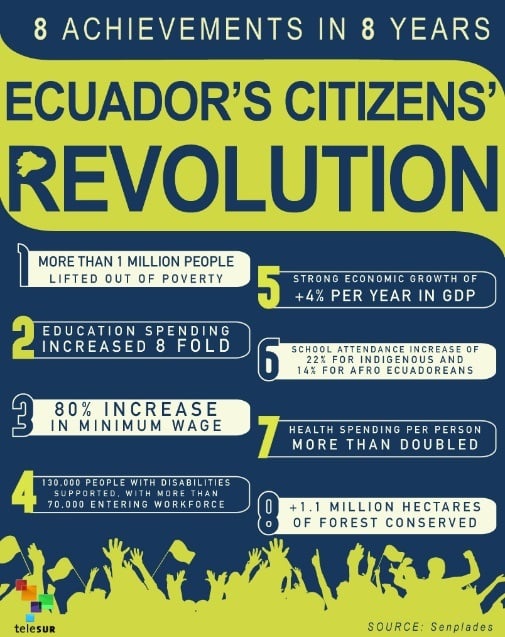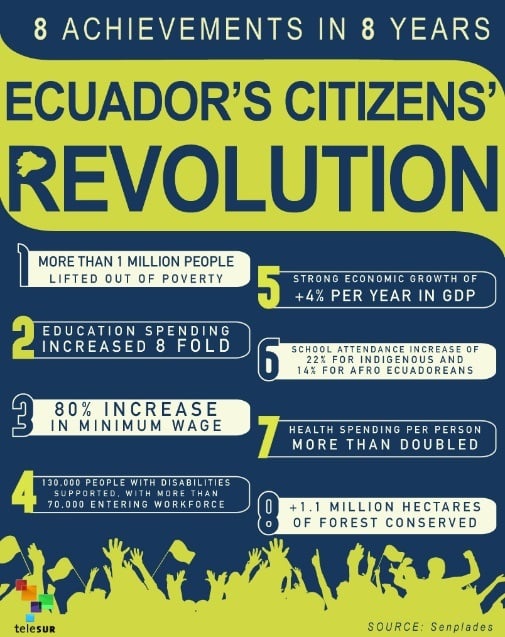The world’s billionaires and political elites have swooped into the Swiss resort town of Davos in about 1,700 private jets this week to rub elbows at cocktail parties and glad-hand at the annual World Economic Forum. Some time after paying at least $71,000 to get there, and in between networking and sealing business deals, these world leaders are also expected to solve some of the globe’s most pressing problems as outlined in the World Economic Forum Global Risks 2015 report.
However, the biggest risk the world faces may be the Forum’s continued neoliberal economic policies its members advocate that have created the crises it supposedly seeks to redress. These crises include climate change, resource scarcity, high structural underemployment, violent interstate conflicts, and the failure of national governance.
Klaus Schwab, the founder and executive chairman of the World Economic Forum, said on Tuesday that “sharing and caring should be the motto of this meeting” taking place between Jan. 21-24.
But Alex Scrivener, policy officer at the U.K.-based social justice organization Global Justice Now, isn’t buying what they’re selling.
“Davos is all about casting the super rich as being the good guys, the heroes. It’s about perpetuating the myth that the rich can save the world with their kindness and philanthropy,” Scrivener told teleSUR.
Scrivener wrote a report “The poor are getting richer, and other dangerous delusions,” to debunk many of the myths these world leaders will be marketing to the world, namely free market, corporate run economic policies.
The Global Justice Now policy analyst takes to task many of the issues that Occupy Wall Street brought to the global forefront back in 2011. Scrivener unmasks the fallacies of free trade, the separation of poverty with inequality, privatization, economic growth as a panacea for social problems, and market schemes such as carbon trading to combat climate change – something that he says in the report is “worse than useless.”
Scrivener described Davos as a testament to the perversity of the market and why the global economy continues to work solely for the 1 percent.
“The reality is that those people are only in those positions of power because of an unjust economic system,” he said. “We’re dependent on people like Bill Gates to help solve global poverty because we live in this system which allows them to have so much money when the majority have none.”
He noted a study released this week by U.K. charity group Oxfam that reveals the globe’s top 80 billionaires own half of the world’s wealth. When asked whether Davos was intended to institutionalize neoliberalism, the economic ideology which encompasses many of the policies he demystifies in his report, he said, “Neoliberalism has been institutionalized for quite a long time already, they don’t need institutionalize it any further.”
World’s 80 richest people now have same amount of wealth as bottom 3.5 billion https://t.co/tOnYQmSVY8pic.twitter.com/Oclp2XP32M
— Report on Business (@globebusiness) January 20, 2015
In fact, Latin America is no stranger to this economic model. From 1980-2000 it suffered an economic collapse with paltry per capita income growth, explained Mark Weisbrot, co-director of the Center for Economic and Policy Research (CEPR).
“This period coincides with the ‘Washington Consensus’ neoliberal economic policies that were largely supported by the vast majority of elites who gather each year in Davos,” Weisbrot told teleSUR. “Latin America as a region was forced into a severe adjustment not only to pay off debt but, once the IMF was involved on behalf of the creditor countries, to institute structural reforms (as in today’s Eurozone) that the Fund and its sponsors in Washington desired.”
The “Washington Consensus” is a term that was coined to describe a set of neoliberal policy prescriptions promoted by international financial institutions such as the World Bank and International Monetary Fund, or IMF, that promoted liberalizing trade and foreign investment, cutting social spending, and prioritizing above all else debt reduction.
However, without the “lost decade” of the 1980s in Latin America, and the 1990s which saw the advent of the North American Free Trade Agreement (NAFTA), a trade deal that exacerbated poverty in Mexico and the United States and that many of todays trade deals are still largely modelled after, we may not have seen the radical departure from neoliberalism in the region and the alternative, and more humane economic policies that many of Latin America’s now ruling left-wing governments are carrying out.
Solutions: Look South and to the Left
“It is this economic growth failure that largely explains the election of left governments in most Latin American countries over the past 16 years, ushering in Latin America’s ‘second independence,’” said Weisbrot.
This new era began in 1998 with election of the late Hugo Chavez as president of Venezuela.
“Privatization is a neoliberal and imperialist plan. Health can’t be privatized because it is a fundamental human right, nor can education, water, electricity and other public services,” said Chavez in one of his many critiques of neoliberalism. “They can’t be surrendered to private capital that denies the people their rights.”
Chavez, through his political vision and diplomacy, created the space for a number of left-wing leaders to be elected throughout the region. Today, the presidents of Ecuador, Bolivia, Uruguay, Chile, Brazil, Argentina, Nicaragua and El Salvador have now largely turned their backs on the “Washington Consensus” and carry on Chavez’s legacy in a region once disparagingly referred to as “Washington’s backyard.”
“Latin America stands out as an example of where they are producing equality. It’s having a positive effect on poverty and that’s undeniable,” said Global Justice Now’s Scrivener.
One Chavez-led initiative that Scrivener points to is ALBA, or the Alliance for the Peoples of our America, something that he said is an alternative economic model for the world to emulate. ALBA was Chavez’s alternative to the Free Trade Area of the Americas, a trade deal pushed by former U.S. President George W. Bush that would have effectively spread NAFTA throughout the Western Hemisphere.
“ALBA does explicitly aim to raise standards. It’s not about a race to the bottom and that is in itself a good thing,” explained Scrivener. “Again ALBA is working in the context of a global climate that doesn’t exactly make an alternative system easy, but its positive that some countries are experimenting with seeing trade as something genuinely good rather than something that serves purposes of the elite.”
The “race to the bottom” refers to the intended consequences of free trade which impel countries to lower labor, public health and environmental standards in order to attract foreign investment. On the other hand, the people-first economic agenda embodied in ALBA has been adopted by presidents across the region and with great success in alleviating poverty and inequality. For example, the United Nations Development Program published a report in August 2014 that states Latin America cut poverty almost in half from 2000-2012.
“There have been considerable economic and social gains in country after country, including reduced poverty (massively reduced in some cases), lowered inequality, increased health and education spending, lower unemployment, wage growth, and many others,” added CEPR’s Weisbrot.

Our most important fundraising appeal of the year
December is the most critical time of year for Truthout, because our nonprofit news is funded almost entirely by individual donations from readers like you. So before you navigate away, we ask that you take just a second to support Truthout with a tax-deductible donation.
This year is a little different. We are up against a far-reaching, wide-scale attack on press freedom coming from the Trump administration. 2025 was a year of frightening censorship, news industry corporate consolidation, and worsening financial conditions for progressive nonprofits across the board.
We can only resist Trump’s agenda by cultivating a strong base of support. The right-wing mediasphere is funded comfortably by billionaire owners and venture capitalist philanthropists. At Truthout, we have you.
We’ve set an ambitious target for our year-end campaign — a goal of $112,000 to keep up our fight against authoritarianism in 2026. Please take a meaningful action in this fight: make a one-time or monthly donation to Truthout before December 31. If you have the means, please dig deep.
